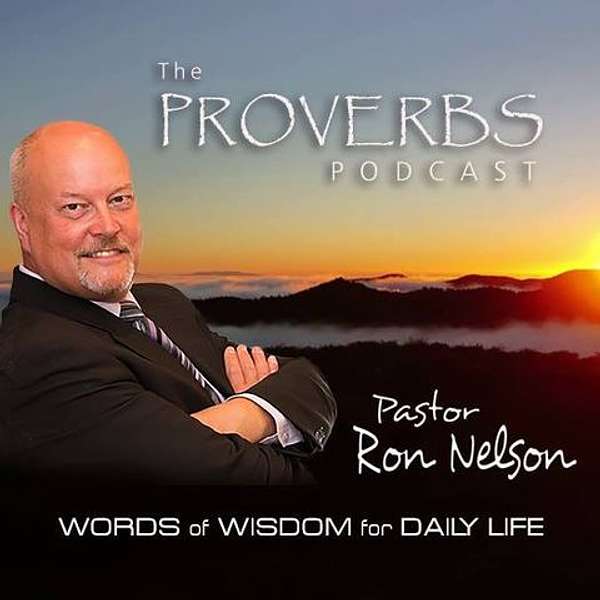
The Proverbs Podcast
The Proverbs Podcast
The Proverbs Podcast Episode 24
Use Left/Right to seek, Home/End to jump to start or end. Hold shift to jump forward or backward.
A devotional reading arising out of a study of Proverbs 6:16,17
Text: " The Lord hates six things; in fact, seven are detestable to him: ... hands that shed innocent blood..." - Proverbs 6:16,17(CSB)
Relationships are sacred before God. At least, I am coming to believe that more and more fervently, as I study God's word. And relationships are all that we are taking with us to heaven. It is interesting to me that the qualification of todays text is limiting in that we are not to shed innocent blood. Why is this?
The bible begins with the phrase, "in the beginning God created..." He is the author of life and according to Paul, it is "in Him that we live and move and have our being"(Acts 17:28). Life, is gifted to us by God and it is not something that we are to take lightly or to disrespect, because in so doing, we may overreach the authority granted to us by God.
Jesus encouraged passive resistance. In Luke 6:29, He says "to him who strikes you on the one cheek, offer the other also. And from him who takes away your cloak, do not withhold your tunic either." In verse 37, He continues, "Judge not, and you shall not be judged. Condemn not, and you shall not be condemned. Forgive, and you will be forgiven." Incidentally, this kind of conduct is only possible in the strength that God offers us in relationship. Too often, of ourselves, we are quick to self justify rather than surrender and await for our Lord's will to be revealed in judgment. In my estimation, to self justify is rarely beneficial.
Two texts come to mind as we wrestle with this. Romans 12:19 says "Beloved, do not avenge yourselves, but rather give place to wrath; for it is written, "Vengeance is Mine, I will repay," says the Lord." Hebrews 10:30 builds upon this thought by adding,"The Lord will judge His people." Apparently, the preferred action would be for us to withhold punitive action and to defer it to God who ultimately will have the final say in judgment.
Jesus' example and his counsel should inform our behaviour. In John 5:30 He says "I can of Myself do nothing. As I hear, I judge; and My judgment is righteous, because I do not seek My own will but the will of the Father who sent Me."
Accordingly, while there may be circumstances that would allow us to administer justice and, at times, to take life, such punitive action would only be ours as it is established without doubt to be God's will. Personally, I find this teaching to be unpalatable, although I can imagine the possibility of taking someone's life, if necessary to preserve my own, or particularly, others. But beyond that, our text must be considered in the greater context and revelation of scripture.
As with God's judgement, such actions are to be the exception and not the defining rule of conduct.
Let me explain. In the final judgment, God is vindicated to be the "God of Love" that He declares Himself to be in 1 John 4:8. Furthermore, after the books are opened and Gods dealing with sinners and the sin problem are made plain, Revelation 15:3 tells us that the redeemed will "sing the song of Moses, the servant of God, and the song of the Lamb, saying: 'Great and marvelous are Your works, Lord God Almighty! Just and true are Your ways, O King of the saints!'"
God's final annihilation of the wicked is proclaimed in scripture, as His "unusual act"(Isaiah 28:21) and as such, the shedding of life should be minimized, if not set aside altogether by us.
In my opinion, such matters of the heart should be left to God, to be considered under the clarity of His Righteous tribunal.
The Apostle Paul says "For now we see in a mirror, dimly, but then face to face. Now I know in part, but then I shall know just as I also am known." 1 Corinthians 13:12. If in this life, we can't fully understand ourselves, how is it that we, as fellow sinners should presume to be capably impartial and able to render someone else's actions as worthy of death?
In some ways, our text is a safeguard for us because we know that we can face the judgment with confidence, as we surrender ourselves into the care and keeping of God. In the judgment, innocent blood will not be shed.
In God "is no darkness at all"(1 John 1:5) and as we seek the pardon of Him who was "in Christ reconciling the world unto Himself"(2 Corinthians 5:19), "the Father delivers us from the power of darkness and conveys us into the kingdom of the Son of His love, in whom we have redemption through His blood, the forgiveness of sins."(Colossians 1:13,14). This is a wonderful reality that you can claim today.
May the Lord help us to relate to others in such a manner as to support His desire for us to live in peace. With an eye towards eternity, may we join God in the redemptive activity He graciously extends to each of us.